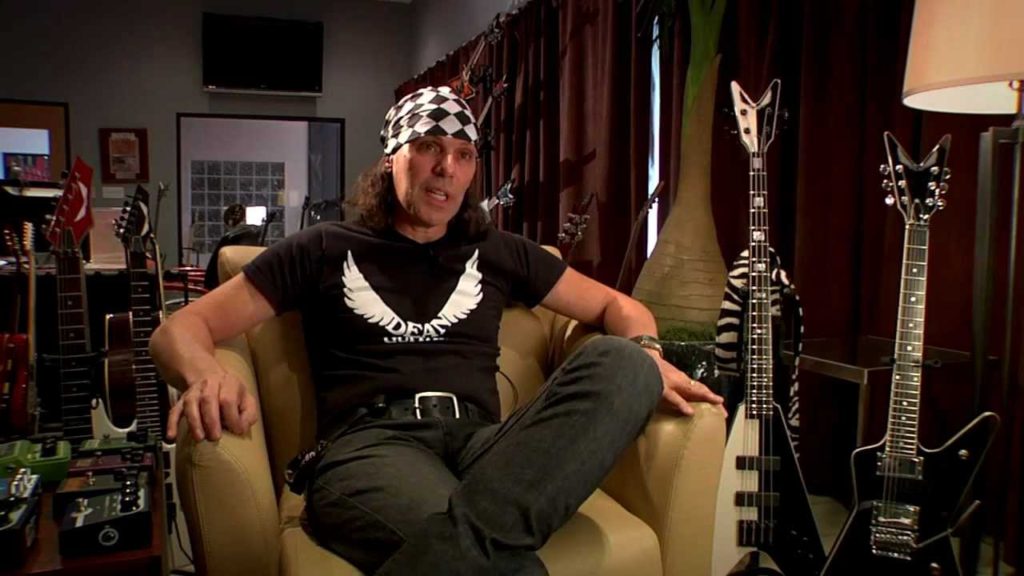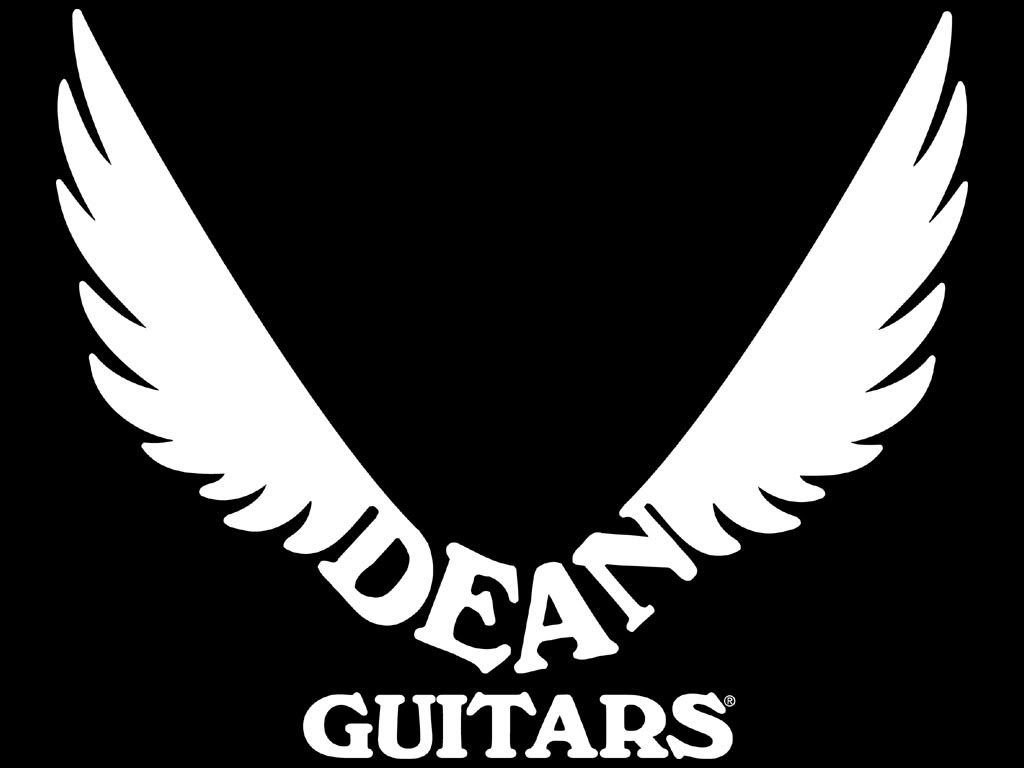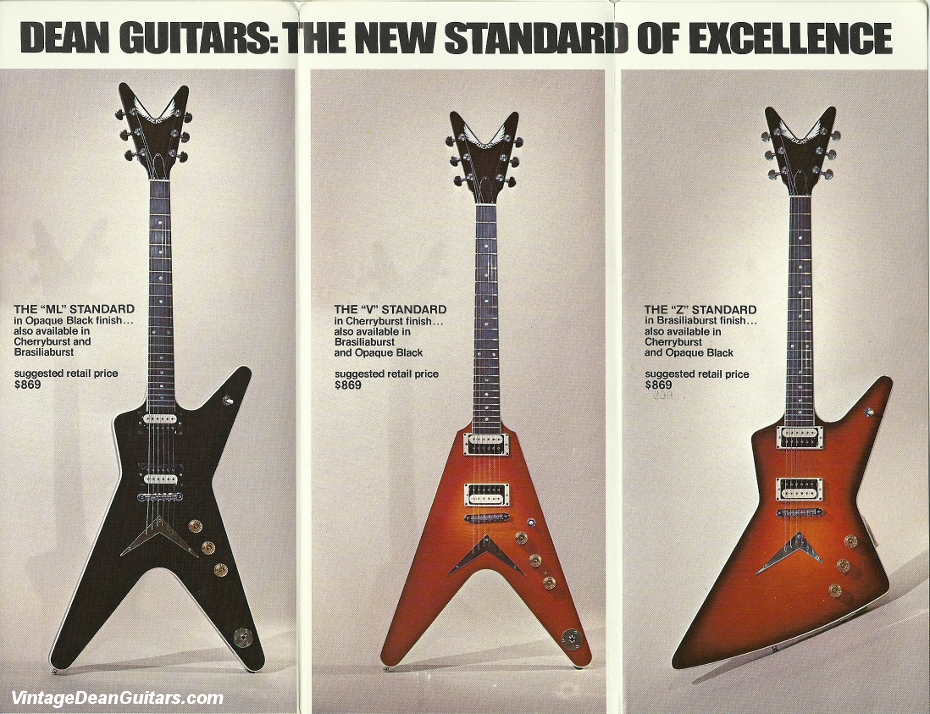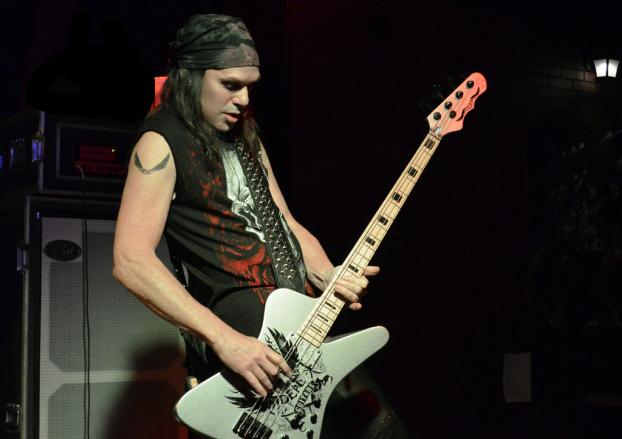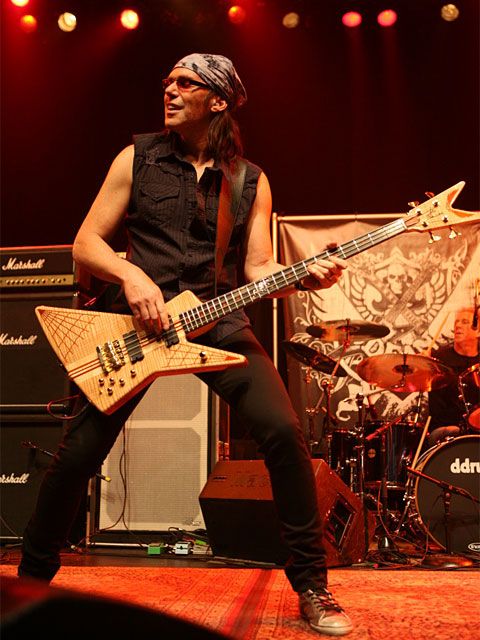On this post, I’d like to do something different. So far, I’ve focused on in-depth articles on musicians, or reviews on certain albums – but when it comes to music, there’s another dimension: instruments. I want to dedicate this article to Elliott “Dean” Rubinson, who recently passed away at the age of 62. He was the President & CEO of Armadillo Enterprises, a company that owns Dean Guitars and ddrum, among others.
Before I get further into the article, a major disclaimer here. I have no business affiliation with Dean Guitars, or any brand Armadillo Enterprises owns. I am not endorsed by the company and did not personally know Elliott Rubinson. But I am a businessman in digital marketing who has also been playing guitars for a long time. And I’ve always had major respect for him because his vision significantly changed the outlook of the company. It is no exaggeration to say that Dean would not be where it is today if it wasn’t for him. So I want to take some time to talk about Dean Guitars, and how Elliott Rubinson brought the brand back into the limelight.
Dean Guitars was founded in 1976 by Dean Zelinsky in Evanston, Illinois. He started his career by repairing other people’s guitars while he was in high school. At the age of 19, he was ready to make his own guitars and in 1977 he was all set to show his products at NAMM. He was interested in offering different shapes of guitars. Something a little different than the traditional Strat or Les Paul shapes. So in the early days, Dean was focused on their own versions of the V and Explorer shapes, (V and Z, respectively), as well as an ML that is now widely known. Shortly afterwards, the Cadillac was also added into the Dean Guitars line-up.
These instruments also featured an extremely unique headstock shape that became synonymous with the brand. They all had a V shaped headstock with three tuning pegs on each side, featuring the Dean logo with wings! To this day, you can find these body shapes with this headstock from the brand – they remain popular products.
I don’t particularly like the V shaped headstock because I find it a little too large – but a lot of people love it and there’s a good reason why Zelinsky designed it this way. If you have a distinct looking headstock that’s also comparatively larger than headstocks offered by other brands, wouldn’t it be easier to identify the brand if you’re watching a guitarist on stage from a certain distance? That was certainly the thought that went into it.
As Zelinsky was busy getting his newly founded brand off the ground, Elliott Rubinson was operating a major music retail store in Tampa, Florida called Thoroughbred Music. According to Richard Ash, the CEO of Sam Ash and long-time friend of Rubinson, Thoroughbred Music was so successful that “in no time at all” they started expanding and had 6 stores throughout the country. In the late ‘90s, Rubinson realized that he needed to shift gears to remain profitable in business. Mars Music, another giant retailer at the time, had entered the market and Rubinson would go on record later to say that Thoroughbred didn’t quickly adapt to changes in the field (a lesson he would later use for his advantage to make Dean Guitars a desired guitar builder). But the area he wanted to focus on would present itself very soon.
While Zelinsky had moderate success with Dean Guitars in the late ‘70s, the trends in the guitar market were rapidly changing in the ‘80s. According to Elliott Rubinson, there were two major changes taking place in the ‘80s. Thanks to the popularity of Eddie Van Halen, consumers were looking more and more for bolt-on necks, as opposed to set-neck that Dean offered. Furthermore, imported guitars were also becoming a global trend, but Dean’s production remained exclusively in the US. According to Rubinson, who was reflecting on Dean’s formative years in a 2010 interview, the company under Zelinsky wasn’t quick enough to react to these key changes and unfortunately went through a financially difficult time. In the ‘90s, Tropical Music, a distributor based in Miami, bought the company. To cut costs of guitars and introduce imported models to the market, they put the Dean logo on the imported guitars they had. Rubinson says they had “reasonable success” with this model; but eventually Tropical Music decided this wasn’t what they wanted to do. It was 1997 and a perfect time for Elliott Rubinson, who was looking for a new business idea outside of retailing, to buy Dean Guitars and re-launch the brand in a new direction.
[embedyt] https://www.youtube.com/watch?v=CJR3ztOQzoc&width=440&height=272[/embedyt]
Around this time, he also decided to sell Thoroughbred Music as he no longer wanted to operate in retailing. But there was a lot of opportunities with the newly acquired brands like Dean and ddrum. He called his long-time friend Richard Ash and the two worked out a deal. Thoroughbred was sold to Sam Ash. Elliott Rubinson was ready to put all his focus on Dean.
So how do you bring back a brand that suffered negative perception for years? How do you tell consumers that your guitars can compete with the best in the market after the quality wasn’t on par for so many years? How do you make sure that you can sign new artists that are so important to get the word out about you?
I’m sure there are a lot of points I will miss in this article. Armadillo Enterprises, Rubinson’s company that owns brands like Dean and ddrum, is a private company. So you can’t find a lot of information. But I’ve been following Dean Guitars ever since one of my favorite guitar players, Dave Mustaine, signed with them in 2007. And I did my research to get more information about the company from credible sources (check links at the end of this article). So I’m going to try to summarize why I think the company became one of the most prominent guitar builders in the market. I own one Dean guitar myself, a DCR Zero, so I will talk about my own guitar as well.
Being a Musician and Hiring Musicians
Elliott Rubinson was a bass player who played and toured with icons like Michael Schenker, Uli Jon Roth, and Michael Angelo Batio. Being a musician and being friends with seasoned musicians allowed him to have a thorough understanding of what the demand in the market was. He knew what musicians wanted. In the past, you saw even big name brands like Fender and Gibson being sold to businesses that didn’t really understand musical instruments – they just wanted profits. But the only way to make a business profitable and expanding your market share is by understanding what your product is first! Elliott understood it and he collected a lot of feedback from friends too. He also kept most of his staff from his Thoroughbred Music days. He kept his musical family intact and surrounded himself with like-minded guitar aficionados who knew what consumers were looking for.
Being Flexible and Adapting to Changing Trends
As mentioned earlier in the article, Elliott Rubinson had some self-evaluation about his Thoroughbred days. He knew you had to act quickly to changes in your market or you would face a serious downward trend. So, he made sure Dean reacted quickly! For people who didn’t like the V-shaped headstocks, alternatives were offered. The company also launched different neck configurations and kept a stock of both USA and imported instruments to have a variety in prices they offered. Because Dean was a smaller company compared to some of the larger guitar makers, they were able to make decisions faster than their competitors and move quickly to launch whatever was needed for artists endorsed by Dean as well as the regular consumers in the market.
[quotcoll id = 6]
Never Forgetting How Your Company Got Started
One of many areas where I have a lot of respect for Rubinson is his decision to hire Dean Zelinksy back as a consultant. Zelinsky worked with the newly launched Dean Guitars from 2001 to 2008 because he knew the USA market. Remember, he’s the founder of the company and despite not being well-funded in the ‘70s, he did have impact in the market. It’s an important business lesson to sometimes set your ego aside and hire people who may know a certain market better than you. Dean today has solid USA production models that get great reviews even from players who normally don’t prefer Dean. So, in the end, you need to have a plan in place about who will provide some advice along the way. And you should not shy away from working with people who were in your shoes earlier.
Signing On New Artists
Endorsements aren’t just great for musicians, they’re great for companies too. Imagine where ESP would be in the American market if the guys in Metallica weren’t using them as early as the ‘80s? So, it was critical for Dean to sign new artists – and make them some of the biggest names out there! This is where the flexibility came into the picture. Every guitarist has a different preference and they will ask for different things along the way. Can you give it to them quickly enough? Are you willing to make changes to your current line-up? The answer was yes from Dean for many of these people. Today, the company is working with Dave Mustaine, Michael Schenker, Vinnie Moore, Michael Amott, Eric Peterson, Uli Jon Roth, Michael Angelo Batio, Rusty Cooley, and many more. I follow Dave Mustaine’s interviews closely since I’m a big fan – and when he left ESP and Jackson was hoping to sign him back, he said Dean made him an offer “he couldn’t refuse”. You can’t really go there unless you’re absolutely prepared and ready to make the changes your artists are looking for! These players have toured many places, done clinics, some showed up at NAMM to launch their new lines. All of these helped Dean Guitars have higher visibility in the market and established a certain level of credibility that didn’t necessarily exist prior to the re-launch under Elliott Rubinson.
[foogallery id=”853″]
Launching the USA Custom Shop in Tampa, FL
It’s widely known that guitar companies need to have a solid production line, unless they are okay with remaining a smaller guitar shop that only caters to custom orders. This is why import models were important to Elliott Rubinson when he relaunched the company. But of course, no matter in what country they are made, production lines are not the be all end all for any guitar company. There is a whole market out there with people who can afford a higher price tag if in return they can get a custom built guitar. Furthermore, there is a whole market of consumers who will want to own a custom run even if the specs did not necessarily come from them. You can’t ignore that. Plus, Dean Guitars started as a custom builder – Zelinsky was producing a couple of hundred of guitars in the early days. So, it’s in your best interest to keep a diversified portfolio of both custom shop and production line guitars. Today, Dean manufactures custom made guitars in their Tampa based Dean USA Custom Shop and the products coming out of there have overwhelmingly positive reviews.
—
Of course, I am well aware that some people will read this article and start thinking of negative things to say about Dean Guitars. Whether it’s the perceived quality of the guitars they have tried from the company, or their opinions of the artists Dean has in their roster, I can anticipate what may be coming. I’ve been a member of multiple online forums, Facebook groups, and read reviews as much as I can in my spare time. I know guitar aficionados are opinionated. That’s okay – I am too! But I will say two things here. One, every guitar company will always face challenges along the way about how to bring up the quality of all of their products while keeping costs to a minimum. So, if certain entry level Dean guitar isn’t what you’d expect, remember that it’s the same for all brands out there. Every guitar builder, including Dean, is trying to improve every instrument line. It takes time. Business is a marathon, not a sprint; so keep an open mind. Second, some of the negative reviews are purely based on personal preference. Don’t confuse that with “quality”. I own a Dean Zero DCR. It’s based on Dave Mustaine’s Dean Zero line; but this one is part of a custom run Dean did with a trans amber finish and floyd-rose bridge. I think the guitar is amazing for its price point considering the specs you get. I love the sound of the guitar but the neck profile isn’t my favorite. That’s because this is an artist signature line so it’s based on his specs! Mustaine prefers a chunkier neck than I do! That’s not really anybody’s “fault”, that’s just preference.
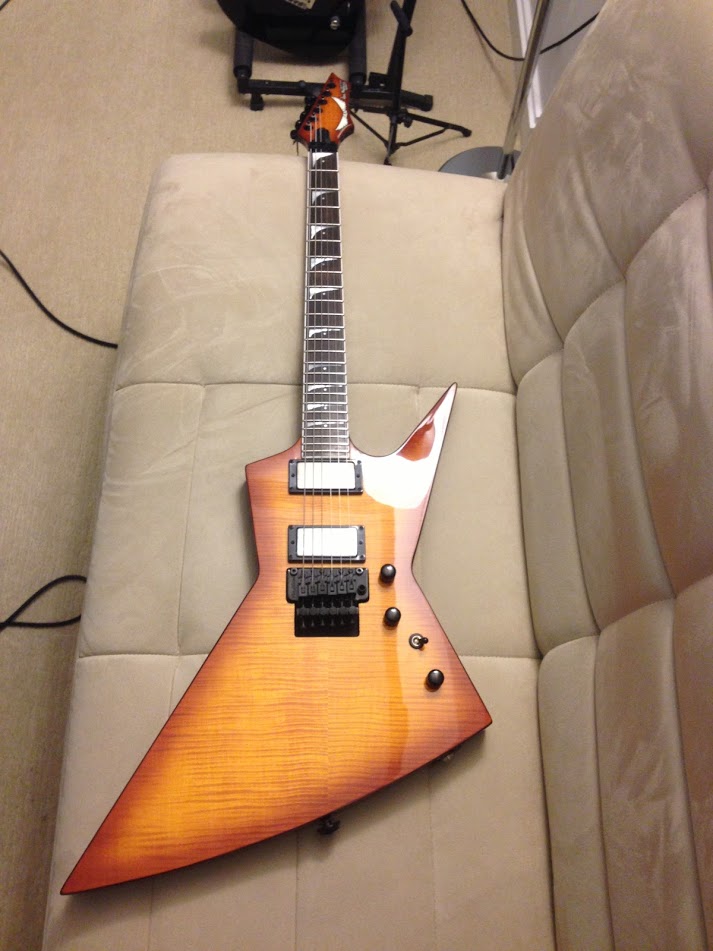
My Dean DCR Zero. This was a custom-run model. Mine is #16 out of 100 total from this run. Photo from the day I received it (2/25/2013).
Remember that we are talking about a company that almost went bankrupt and was facing an enormous amount of negative talk. When I started playing guitar in early 2001, there wasn’t much talk about Dean Guitars that I could see. Today, that’s not the case. Even with retailers who only deal with high-end guitars (think Mayones, Caparison, ESP Custom, etc.), Dean finds its spot in those places. And people who may not normally prefer Dean Guitars will still tell you only positive things about the quality of their USA guitars. Artists who come from a diverse array of genres will do business with Dean that they perhaps didn’t consider just 15 years ago. Dean Guitars is a staple now. They have their respected spot along with all other major players of the market. If you don’t see the difference in Dean Guitars after it was relaunched under Elliott Rubinson’s guidance, then you are not looking.
Elliott Rubinson passed away earlier this year at the age of 62. Even though I didn’t know him personally I was saddened because I was aware of what he had done for his company and his artists. As a businessperson, I’ve always had a lot of respect for him for being able to put the necessary tactics in place to make sure the company grew; but grew with the same family vibe with all employees and artists sharing that feeling. His son, Evan Rubinson, is now the CEO of Armadillo Enterprises. From what I can see on Dean’s social media, the company remains in good hands and I wish them the best with everything.
Sources & Additional Reading:
- Dean Guitars CEO Elliott Dean Rubinson Talks Gigging with Uli Jon Roth, Balancing Life As a Musician
- MusicBiz Cast Episode 42: Elliott Rubinson, CEO of Dean Guitars, ddrum, and Luna Guitars breaks down the music biz like few can
- Armadillo Enterprises Announces New CEO, Evan Rubinson
- Richard Ash, CEO of Sam Ash, Pays Tribute to Elliott Rubinson
- A Brief History of Dean Guitars
- NAMM Interview with Elliott Rubinson
- Elliott Rubinson, bass player for Micheal Schenker, Uli Jon Roth and Owner of Dean Guitars
- GearHounds Interview with Elliott Rubinson, 2009
- How to Choose the Best Guitar, 15 Factors to Consider According to Science

